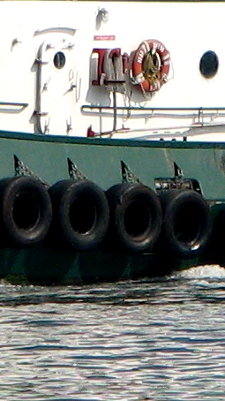Tension in supply chain as tugboat workers push to strike
 A key driver of the national economy could be brought to a halt, as West Australian tugboat workers consider damming iron ore exports with possible strike action.
A key driver of the national economy could be brought to a halt, as West Australian tugboat workers consider damming iron ore exports with possible strike action.
Tugboat workers at Port Hedland are considering taking out the frustrations on one of the Australian government's prime cash-cows.
Deckhands linked to the Maritime Union of Australia say they want better work conditions, as a group of 45 voted to approve holding strikes of 24 hours, 48 hours and seven days if necessary.
The impending standoff has formed over a workplace dispute with North American shipping company Teekay.
Teekay is contracted to operate tugboats for all exporters within the Port Hedland harbour.
The tugboat workers are seeking better pay and the introduction of annual leave. They currently earn around $140,000 and have no annual leave, though they work four-weeks-on four-weeks-off. Maritime Union spokesperson Will Tracey says there should also be four weeks of annual leave each year.
The docks at Port Hedland see the export of over $100 million in iron ore every day, a major jumping point for the $78.5 billion worth of iron ore to be sent overseas this year.
BHP Billiton, Fortescue Metals and Atlas Iron will be the hardest hit if a strike does go ahead.
Rio Tinto could be a relative winner from the industrial action, as it exports from its own port about 200 kilometres away.
No date has been set for the tugboat deckhands’ strike, but the approval voted on this week will only last for 30 days.
Two other classes of tugboat workers - engineers and masters - are inching towards strike action as well.








 Print
Print